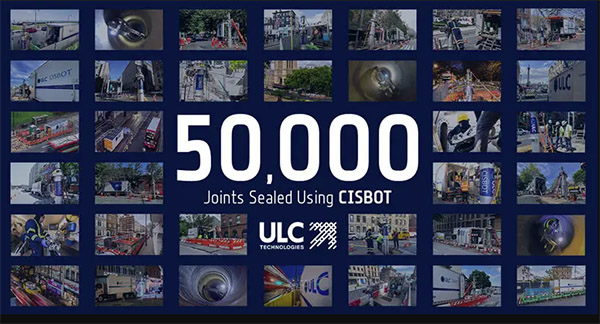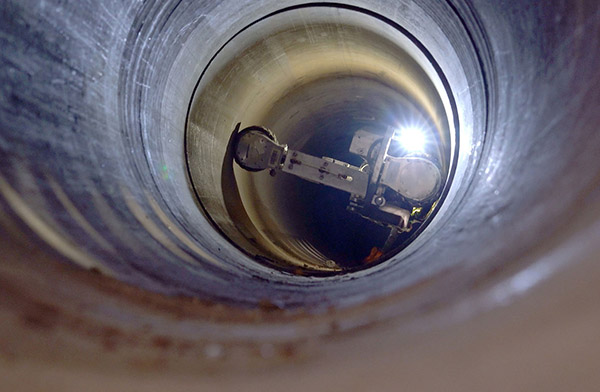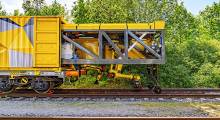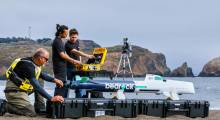ULC Technologies LLC yesterday announced that its CISBOT robot has sealed 50,000 joints—equivalent to 114 mi. or 183 km— inside live gas mains across the U.K. and U.S. over the past 14 years.
“We are thrilled to reach this milestone and to have played a role in the safe and reliable delivery of natural gas to communities across the country,” said Steve Green, general manager of ULC Technologies.
Hauppauge, N.Y.-based ULC Technologies said it helps utilities, energy providers, and industrial sector companies confront the increasing need to repair and maintain their infrastructure. It has developed and commercialized robots, machine learning, and inspection services.
ULC said its systems, offered through a robotics-as-a-service (RaaS) model enable pipeline inspection and repair with less disruption to the public. They can also reduce greenhouse gas emissions and minimize costs, according to the company, which is part of SPX Technologies.
CISBOT reduces disruptions
Normally, gas main service requires excavation of a road or street to find and repair leaks. This can disrupt traffic, and draining pipes is time-consuming and dangerous.
CISBOT, or the “Cast Iron Joint Sealing Robot,” goes into live gas pipes to repair or upgrade leaking and aged mechanically bolted or lead jute joints. The robot allows for repairs to be made to gas pipes while minimizing disruptions to road users and to customers’ gas supply.
The award-winning technology has come a long way since it was first developed in the late 1990s during a utility-sponsored research and development project, said ULC.
The technology can travel up to 450 m (1,500 ft.) from one single strategically placed excavation in the road. By avoiding the need for large excavations, CISBOT has proven to be a cost-effective approach to pipeline rehabilitation, the company explained.
Most recently through strong collaboration with utility partners, ULC said it has expanded CISBOT’s capabilities to be able to remediate cast-iron assets between 15 and 42 in. (38.1 and 106.6 cm) in diameter.

ULC says technologies aid sustainability
To protect against pipeline leakage, the gas industry has supported both reactive and proactive deployments of CISBOT, helping it reach the 50,000 joint milestone, said ULC Technologies. The company has partnered with gas distributors including National Grid, Con Edison, SGN, Cadent, and other large utilities.
CISBOT has been deployed since 2009 under the busiest streets in the U.K. and U.S., such as New York, London, Manchester, and Boston, said ULC. In addition, CISBOT supports the reduction of carbon emissions in the gas industry, the company claimed.
“CISBOT has been a game-changer for the gas pipeline industry to support global net-zero commitments by reducing methane emissions through internal joint sealing,” said Green. “We are continuing to develop a suite of technologies to support the energy industry, as well as continually improving our systems to meet the needs of our customers.”
Article topics
Email Sign Up
















